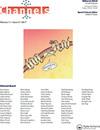Justification by Faith: A "Both-And" Approach
IF 3.2
3区 生物学
Q2 BIOCHEMISTRY & MOLECULAR BIOLOGY
引用次数: 0
Abstract
The Pauline doctrine of justification is a prevailing subject among biblical scholarship today. Especially, as a New Perspective on Pauline literature rises claiming that Luther was wrong in his view of Justification, since he was blinded by his own context forcing it into his interpretation of the Pauline text. Consequently, the reformed view cannot be right since it interprets the doctrine of justification mainly through soteriological lens, whereas the Apostle had only ecclesiological purposes in mind when addressing the subject. In light of the previous thought, the purpose of the article is to criticize the New Perspective’s exclusive method by proposing a “both-end” approach to Justification affirming the soteriological aspects of justification held by Luther, but also pointing out the reality of ecclesiological implications. The article is divided in two main sections. The first section highlights the NPP (New Perspective on Paul) definitions of key terms, such as “Works of the Law”, “the Righteousness of God”, and “Justification”, followed by important observations concerning their view of the terms. The second portion of the article provides three main arguments for Paul’s use of the doctrine of Justification having primarily in mind soteriological purposes. The hope for this work is not to solve the debate between both parties, but to demonstrate that the traditional (reformed) view concerning the doctrine of justification is not absurd, as some would say, and that it is possible to hold a soteriological position and still affirm ecclesiological implications to the Pauline doctrine.因信称义:一种“兼而有之”的方法
保罗称义的教义是当今圣经学术研究的主流主题。特别是,随着一种新的保罗文学观点的兴起,声称路德的称义观点是错误的,因为他被自己的背景蒙蔽了双眼,迫使他对保罗文本进行解释。因此,改革宗的观点不可能是正确的,因为它主要是通过救赎论的视角来解释称义的教义,而使徒在谈到这个主题时,心中只有教会的目的。在上述思想的基础上,本文的目的是通过提出一种“两端”的称义方法来批判新观点的排他方法,这种方法肯定了路德所持的称义的救赎论方面,但也指出了教会意义的现实。这篇文章分为两个主要部分。第一部分强调了NPP(保罗的新观点)对关键术语的定义,如“行律法”、“神的义”和“称义”,然后是关于他们对这些术语的看法的重要观察。文章的第二部分为保罗使用称义的教义提供了三个主要论点,主要是为了救赎目的。本书的目的不是要解决双方的争论,而是要证明传统的(改革宗的)关于称义教义的观点并不荒谬,就像有些人会说的那样,而且在持救赎论立场的同时,仍然可以肯定保罗教义的教会意义。
本文章由计算机程序翻译,如有差异,请以英文原文为准。
求助全文
约1分钟内获得全文
求助全文
来源期刊

Channels
生物-生化与分子生物学
CiteScore
5.90
自引率
0.00%
发文量
21
审稿时长
6-12 weeks
期刊介绍:
Channels is an open access journal for all aspects of ion channel research. The journal publishes high quality papers that shed new light on ion channel and ion transporter/exchanger function, structure, biophysics, pharmacology, and regulation in health and disease.
Channels welcomes interdisciplinary approaches that address ion channel physiology in areas such as neuroscience, cardiovascular sciences, cancer research, endocrinology, and gastroenterology. Our aim is to foster communication among the ion channel and transporter communities and facilitate the advancement of the field.
 求助内容:
求助内容: 应助结果提醒方式:
应助结果提醒方式:


